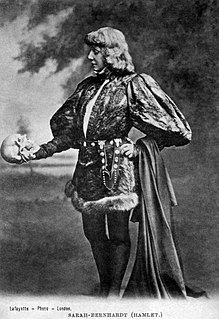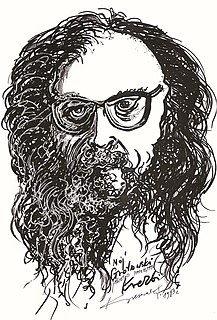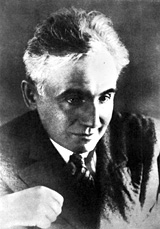Administration
Eugenio Barba serves as the director of ISTA. Each session of the school focuses on a different aspect or theme, which is investigated by means of workshops and classes. Lectures and demonstrations are also used, as are theatrical performances.
Before these sessions begin, the attendees are selected from applicants who have shown an interest to attend, participate, or simply observe. These applicants represent various fields and include choreographers, performers, directors, scholars and critics. The ISTA is essentially a network of contacts between interested parties with a permanent core of professors and performers from many universities in Europe, Africa, Asia and the Americas.
The work of the ISTA continues outside of the sessions in the form of research and continued contact, exchanges and initiatives among and between its members. The results of the work and study are collected, interpreted and disseminated by and within the framework of the University of Eurasian Theatre.

Acting is an activity in which a story is told by means of its enactment by an actor or actress who adopts a character—in theatre, television, film, radio, or any other medium that makes use of the mimetic mode.

Jerzy Marian Grotowski was a Polish theatre director and theorist whose innovative approaches to acting, training and theatrical production have significantly influenced theatre today.
Improvisation is the activity of making or doing something not planned beforehand, using whatever can be found. Improvisation in the performing arts is a very spontaneous performance without specific or scripted preparation. The skills of improvisation can apply to many different faculties, across all artistic, scientific, physical, cognitive, academic, and non-academic disciplines; see Applied improvisation.

Holstebro Municipality is a municipality in Region Midtjylland on the Jutland peninsula in west Denmark. The municipality covers an area of 801.55 km2 (309.48 sq mi), and has a population of 57,411. Its mayor is H. C. Østerby, a member of the Social Democratic party.

Experimental theatre, inspired largely by Wagner's concept of Gesamtkunstwerk, began in Western theatre in the late 19th century with Alfred Jarry and his Ubu plays as a rejection of both the age in particular and, in general, the dominant ways of writing and producing plays. The term has shifted over time as the mainstream theatre world has adopted many forms that were once considered radical.

Physical theatre is a genre of theatrical performance that encompasses storytelling primarily through physical movement. Although several performance theatre disciplines are often described as "physical theatre," the genre's characteristic aspect is a reliance on the performers' physical motion rather than, or combined with, text to convey storytelling. Performers can communicate through various body gestures.
Performance studies is an interdisciplinary academic field that uses performance as a lens and a tool to study the world. The term performance is broad, and can include artistic and aesthetic performances like concerts, theatrical events, and performance art; sporting events; social, political and religious events like rituals, ceremonies, proclamations and public decisions; certain kinds of language use; and those components of identity which require someone to do, rather than just be, something. According to Mary S. Strine, Beverly W. Long, and Mary Frances HopKins, "scholars in interpretation and performance... recognize and expect disagreement not only about the qualities that make a performance "good" or "bad" in certain contexts, but also about what activities and behaviors appropriately constitute performance and not something else." Consequently, performance studies is an interdisciplinary field, drawing from theories and methods of the performing arts, anthropology, sociology, literary theory, cultural studies, speech communication, and others.

Eugenio Barba is an Italian author and theatre director based in Denmark. He is the founder of the Odin Theatre and the International School of Theatre Anthropology, both located in Holstebro, Denmark.

Oleksandr-Zenon Stepanovych Kurbas, was a Ukrainian movie and theater director, is considered by many to be the most important Ukrainian theater director of the 20th century. He formed, together with Vsevolod Meyerhold, Yevgeny Vakhtangov and several other directors, the Soviet theater avant-garde in the 1920s and 1930s. He is one of the most prominent representatives of Ukrainian avant-garde art. He is considered to be one of the lead figures of the Executed Renaissance.
Odin Teatret is an avant-garde theatre group based in Holstebro, Denmark. It was founded by Italian theatre director and investigator Eugenio Barba in 1964. Odin Teatret is a part of NTL, Nordisk Teaterlaboratorium, which also includes the International School of Theatre Anthropology (ISTA), founded in 1979, and the Centre for Theatre Laboratory Studies (CTLS), founded in 2002
A theatre practitioner is someone who creates theatrical performances and/or produces a theoretical discourse that informs his or her practical work. A theatre practitioner may be a director, dramatist, actor, designer or a combination of these traditionally separate roles. Theatre practice describes the collective work that various theatre practitioners do.
Intercultural theater, also known as cross-culturaltheatre, may transcend time, while mixing and matching cultures or subcultures. Mixing and matching is the unavoidable process in the making of inner connections and the presentations of interculturalities. The majority of the works in intercultural theatre deal basically with thinking and doing around the themes, stories, pre-performative or performative concepts of Asian classical theatre or traditional performing arts forms and practices, mixing and matching the concepts or the ideas of the foreign. After the well-known success of Peter Brook's production of the Mahabharata, the trend has been evolving tremendously around the globe and many the cultural institutions of many governments have become directly interested in pushing the boundaries of intercultural senses and sensitivities by financially investing on new theatrical productions, university research, conferences and fellowships
Devised theatre - frequently called collective creation - is a method of theatre-making in which the script or performance score originates from collaborative, often improvisatory work by a performing ensemble. The ensemble is typically made up of actors, but other categories of theatre practitioner may also be central to this process of generative collaboration, such as visual artists, composers, and choreographers; indeed, in many instances, the contributions of collaborating artists may transcend professional specialization. This process is similar to that of commedia dell'arte and street theatre. It also shares some common principles with improvisational theatre; however, in devising, improvisation is typically confined to the creation process: by the time a devised piece is presented to the public, it usually has a fixed, or partly fixed form. Historically, devised theatre is also strongly aligned with physical theatre, due at least in part to the fact that training in such physical performance forms as commedia, mime, and clown tends to produce an actor-creator with much to contribute to the creation of original work.
The Magdalena Project is an international network of women in contemporary theatre and performance. It aims to increase awareness of women's contributions to theatre and to create the artistic and economic structures and support networks to enable women to work.
Cristina Wistari Formaggia was an Italian actress, performer and artist who came to be a key participant in the preservation and dissemination of Balinese dance – particularly the Topeng and Gambuh traditions; she was also a student of the Indian Kathakali school of sacred performance art. She was heavily involved in contemporary trans-cultural theatre being both an active participant in the ISTA in collaboration with Eugenio Barba and the Odin Teatret and with the Magdalena Project.

Presentational acting and the related representational acting are opposing ways of sustaining the actor–audience relationship. With presentational acting, the actor acknowledges the audience. With representational acting, the audience is studiously ignored and treated as voyeurs.
The Institute for Applied Theatre Studies is part of the Justus Liebig University Gießen. It offers three different degree programs: a three-year Bachelor's program, Applied Theatre Studies, and two two-year Master's programs, Applied Theatre Studies and Choreography and Performance (CuP). Each course places equal importance on academic and artistic practice. In seminars, reading courses and tutorials, students asked to engage with theoretical issues, while in performance projects, practical courses and workshops they experiment with different artistic approaches. Courses in the humanities and cultural studies offered by the university are also incorporated into each program. In choreography and performance, certain practical classes are organized in cooperation with the Frankfurt University of Music and Performing Arts, where these classes will also be held.
Kirsten Blinkenberg Hastrup is a Danish anthropologist and professor of anthropology at the University of Copenhagen. She has taken a special interest in the conjunction between the history and culture of both Iceland and Greenland, publishing widely on both, while also examining the relationship between the theatre and anthropology. Hastrup was president of the Royal Danish Academy of Sciences and Letters from 2008 to 2016.

Nina Király (1940-2018) was a Mari Jászai award-winning theater historian, dramaturg, an expert on Polish and Eastern-European theater, who lived and worked in Budapest, Hungary. From 1993-1999 she was the Director of OSZMI The Hungarian Theatre Museum and Institute and later became the advisor on international theaters and festivals for the Hungarian National Theater and the co-creator of the International MITEM festival. During her years as the Director of the Hungarian Theater Instituteshe published many theater books that were previously not translated or available for the Hungarian public, introducing the works of such international luminaries as Jan Kott, Anatoly Vasiliev, Eugenio Barba, Tadeusz Kantor. She spoke 4 languages.








